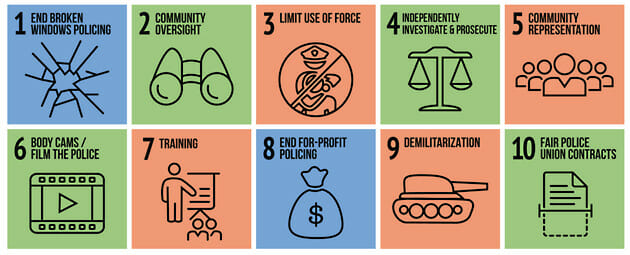The other day Megan McArdle wrote an article entitled "The CFPB Fight Is Completely Pointless...Why is either side spending political capital for brief control over this agency?" In short, the the folks on the Left who mostly populate the Elizabeth Warren / Barrack Obama created agency argue that deputy director Leandra English should become acting director after the current director stepped down. President Trump argues he should be able to appoint the acting director (as the President would for any other agency) and appointed CFPB critic Mick Mulvaney.
My heart thrills as readily as anyone’s to the sight of a doomed soldier playing Horatius at the Bridge. But at least Horatius Cocles had a purpose: He secured an orderly retreat, allowing the army to live to fight another day. What, exactly, do [Leandra] English and her supporters hope to achieve, other than a spectacle for wonky Washingtonians?
The most they can get is a brief period of business as usual, during which it will be hard to enact binding decisions because the legitimacy of her leadership will be in doubt. At worst, they get a humiliating smackdown from the courts, cementing their place in history as elitists who thought they were above petty restraints like elections or the Constitution.
And in the broader political picture, if you think Mulvaney is a bad, dangerous man who will privilege the interests of rich bankers over those of ordinary Americans, you’d probably rather have him running the CFPB than in his current job -- overseeing the entire federal budget. Even if English wins and sends him back to OMB, this seems like a Pyrrhic victory for the left.
While most everyone else on the Internet seems to be able to automatically intuit everyone else's internal motivations, I don't claim to have that ability. So I will offer one possible motive why Leandra English might see personal benefit from this otherwise pointless struggle.
It is no news to say that the US has arrayed itself into multiple tribes that hate each other. The election of President Trump has only accelerated this. Trump is so disliked by those on the Left that folks on the Left can score major points with their tribe by publicly opposing him, even when their effort is doomed and ultimately pointless. Wendy Davis is a good example of a politician who greatly increased her status in the Left-tribe with an ultimately doomed filibuster of an abortion bill in Texas (so much so that a hagiographic movie is being made about her). I have wondered whether several of the judges who have temporarily halted controversial but probably legal executive actions by Trump were not motivated as much by playing to the audience in their tribe as they were by making a thoughtful legal decision.
Which brings me to the agency problem, which Wikipedia defines thus:
The principal–agent problem, in political science and economics, (also known as agency dilemma or the agency problem) occurs when one person or entity (the "agent") is able to make decisions on behalf of, or that impact, another person or entity: the "principal".[1] This dilemma exists in circumstances where agents are motivated to act in their own best interests, which are contrary to those of their principals, and is an example of moral hazard.
Common examples of this relationship include corporate management (agent) and shareholders (principal), politicians (agent) and voters (principal), or brokers (agent) and markets (buyers and sellers, principals).[2] Consider a legal client (the principal) wondering whether their lawyer (the agent) is recommending protracted legal proceedings because it is truly necessary for the client's well being, or because it will generate income for the lawyer. In fact the problem can arise in almost any context where one party is being paid by another to do something where the agent has a small or nonexistent share in the outcome, whether in formal employment or a negotiated deal such as paying for household jobs or car repairs
I think too often people define the agency problem only about economic incentives, e.g. my broker only recommends the stocks that pay him the highest commission. But most of us are motivated by many things in addition to money.
Consider the example of a media conglomerate with multiple cable channels. The managers of this media conglomerate are mostly of the Left. One of their channels is called the shooting channel and focuses on gun reviews and the shooting sports. The channel needs a new president, and it hires Hannah Progressive, either internally or from another successful media company. Hannah is a talented media person with a proven track record of building cable channels and a perfect fit in every way except that she is disdainful of the shooting sports and groups like the NRA. But let's say that Hannah is a true professional and can put that aside. But what may be harder to put aside is the reaction of her peers. She is going to get teased, maybe even bullied, by folks in her social circles. Her peers are going to look down on her, even if she is successful (maybe especially if she is successful). There is going to be tremendous pressure on her, both from her social circle as well as well as when she thinks about future job prospects an the industry dominated by the Left, to virtue-signal to others on the Left. She could be tempted to shift content, alliances, advertisers,etc. in ways that signal virtue to her tribe but might alienate her current viewers and actually hurt the financial results of her company.
I frequently think about this in the context of how university presidents respond to protests, or how the NFL does so, or when seeing ESPN programming changes. I have even seen it with programmers, working harder to impress their peers with the elegance of their code than to try to actually write things that serve the company and the customer.



